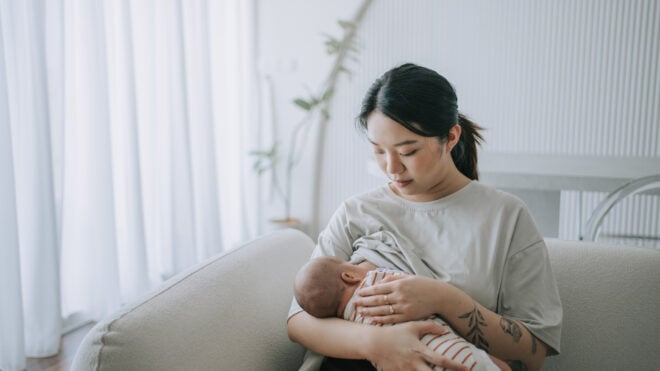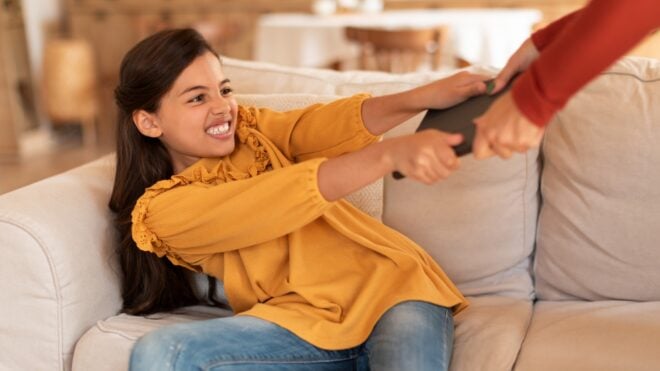
Hair has played a major role in black American history. Whether bringing families together, creating jobs and economic growth, or helping children establish a sense of self, the power of coiled crowns has pervaded history for black people in the US. Read on to learn more about why hair is such a big deal in the chronicles of Afro-America.
There's a bond

Little is more precious and intimate than a black little girl getting her hair done by her mother, grandmother, or auntie. As adults, black women continue bonding by helping to style one another’s hair or sharing secrets of the perfect braiding techniques. Separated from the chaotic outside world, in these attentive moments, black women give their attention and affection through combs and cornrows. Even for black men, barbershop visits are as much of a place for camaraderie as getting the perfect cut, showing how unifying hair has been throughout black history.
The personal hair journey

When a black woman begins growing out her tresses naturally, without the aid of chemical treatments, it’s usually called the beginning of her natural hair journey. Black people have been on a collective hair journey since being introduced to chemical treatments, such as the relaxer, and living among radically different hair types throughout American history. Though treatments like these are controversial in the African American community, everyone’s hair journey is their own. It’s important to know that whether a person decides to wear their natural curly hair or chooses to use relaxers, there is no wrong style.
Families carry on traditions

When the ancestors of today’s African Americans were kidnapped and sold into slavery, they did their best to hold onto whatever traditions they could. Though they were deprived of literacy and their families were constantly being separated, making it more difficult to accumulate generational information, certain skills and lessons could be passed down verbally and by hand, including how to care for and style black hair. These same skills, originating from West and Central Africa, still contribute to the way black people take care of their hair today.
Hair styling represents freedom and value

When black people were enslaved, they were made to feel less than human. Hygienic items, suitable grooming supplies, and presentable clothing were often hard to come by, if not restricted altogether. When slavery was abolished in 1865, black people were finally able to present themselves in a way that made them feel valuable. Over the years, presentation has kept its significance within African American culture, especially extending to the meticulous measures often used in sculpting the perfect 'do.
Representation in the media

Media content, including films, TV shows, and advertisements, plays a large part in shaping the way we look at ourselves in relation to the world around us. Throughout the course of history, celebrity role models that represented the many arrays of African American skin tones and hair types were scarce, making it more difficult for black children and adults to feel valued and included in a world they didn’t see themselves in. Today, celebrities like Yara Shahidi and Issa Rae are helping set the stage for natural-haired black women to be themselves on screen and in real life.
Community

At one time, “whites only” signs banned African Americans from using the same facilities as white people, but black people figured out ways to create environments that encouraged community. Specifically, the black hair industry created spaces, like beauty stores, salons, and barbershops, where black people could come together, learn from one another, and share laughs. Now, niche styles — like dreadlocks (usually shortened to locs or dreads) and specialty braids — have created even more specific communities that gather, learn, and share in spaces where black people can feel safe and included among one another.
Cultural entrepreneurship

Throughout history, in order to cater to the countless distinctive curl patterns and different textures of black hair, a variety of products had to be developed by African-American inventors and entrepreneurs. To serve the needs of kinky-haired people, innovative thinkers like Garrett A. Morgan created the first chemical hair relaxer in the early 1900s, while Madam CJ Walker became the first self-made black female millionaire, largely due to her black hair care products. African American hair stylists and barbers have now evolved into teachers, by carrying on the craft, and successful business people, by making a living from their skills within the community.
Symbolism

The versatility of black hair is so great that it has even been used as symbols of political and religious affiliation. During the civil rights movement, some Black Panthers sported large Afros as a statement of pride. Members of the Rastafarian religion are known for growing their hair into dreadlocks, although today most African Americans with locs aren’t Rastas.
Creative nourishment

Black people have used creative thinking to do everything from organizing the underground railroad to creating fine art. As an exercise of expression, there has always been the task of waking up to a head of hair that has endless possibilities. There are the options of braids, twists, straightening, adding colorful scarves, and jewelry embellishments — and that’s not even scratching the surface! Many African Americans have hair that is lightweight and voluminous, making it perfect for sculpting and molding into unique shapes and styles, while simultaneously inspiring fresh thought and critical thinking.
The mark of icons

Legends like Diana Ross and Beyoncé are known for their trademark big hair, but they aren’t the only black celebrities with superstar strands. Locs are one-of-a-kind, no matter who wears them, but Whoopi Goldberg, Bob Marley, and Jean-Michel Basquiat are examples of how one style can accurately reflect such extremely different talents, even becoming a part of their public identity and image. Even abolitionist and writer Frederick Douglass is often thought of with his slicked and side-parted do, proving the longevity of an iconic black hairstyle.
Unity and empowerment

As much as the uniqueness of black hair can be magnified by a society largely based on European traditions, having hair that links back to the resilience and strength exhibited by extremely oppressed people can be empowering. Today, many black people are proud to have hair that reminds them that they are descendants of enslaved people and those who fought for them to have better lives. Similar to the solidarity that a uniform brings a team, a shared culture of hair reminds members of the African American community that they are not alone.
Inspiring the future

The endless variety of black hairdos is a nonstop experiment for most. With the ability to manipulate hair into unfathomable formations, there’s still no telling how black hair will impact the world. If history has proven anything, it’s not to underestimate any tool of progression. Black hair has already been a catalyst for passing down cultural information, inspiring creation, and cementing identities. Who knows what the future holds?







